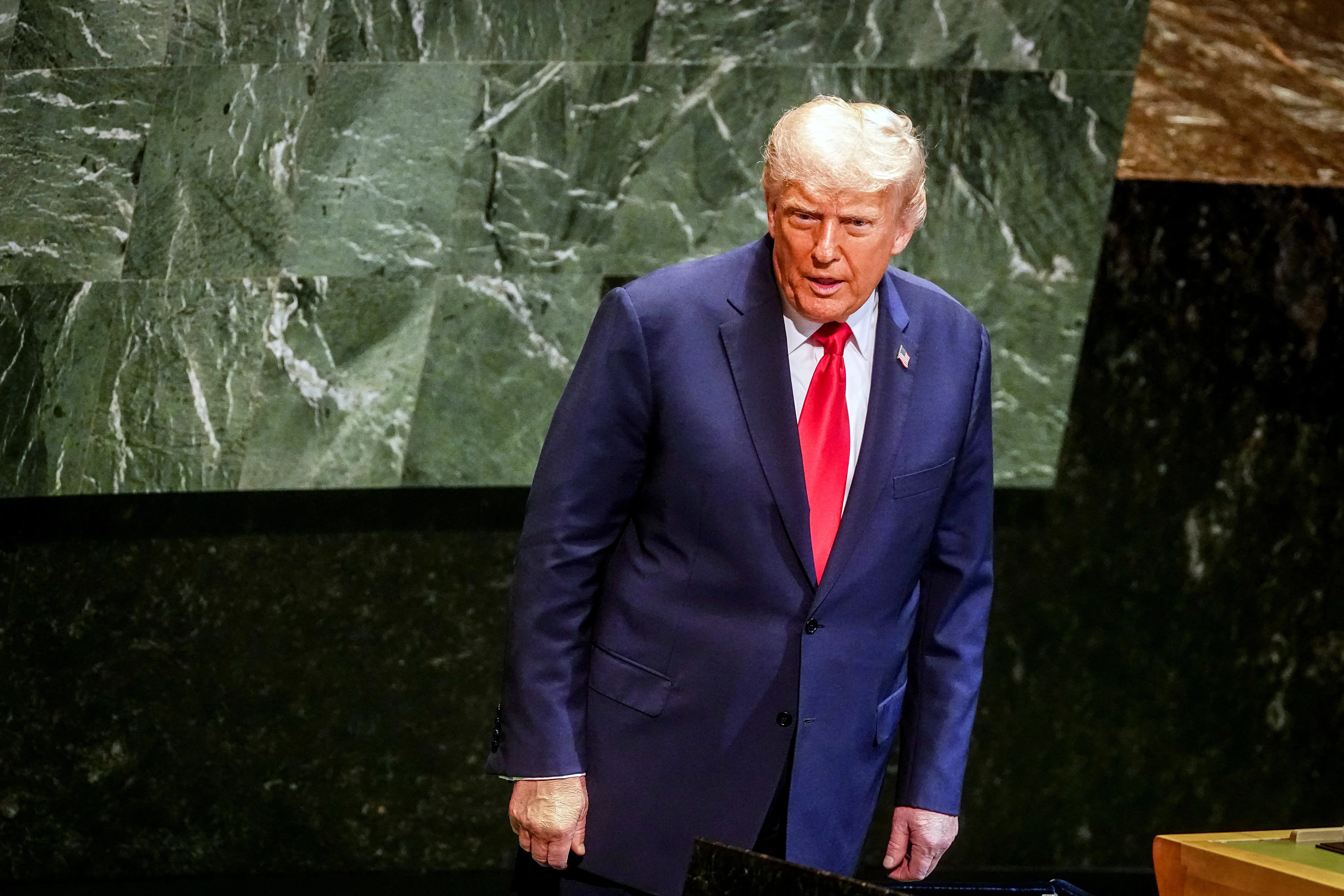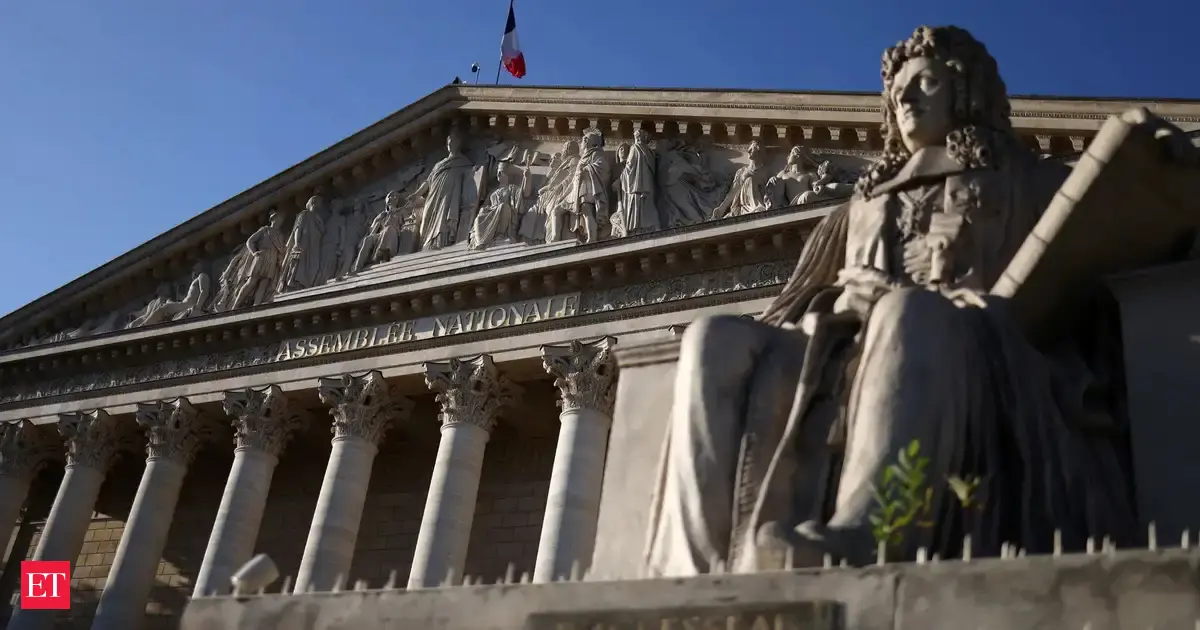By Mark Magnier
Copyright scmp

US President Donald Trump offered up a litany of grievances in a combative speech at the UN that called on the global community to end “failed approaches”, stop supporting renewable energy and recognise that “I have ended seven unendable wars”.
Addressing the world’s foremost diplomatic body with his characteristically undiplomatic rhetoric, Trump touted his record of revitalising US fortunes and said his nation has the “greatest weapons on earth” that it would rather not deploy.
“Not only is the UN not solving the problems it should, too often it’s also creating new problems for us to solve,” said Trump in the cavernous General Assembly hall in New York, slamming its support for refugees and migrants.
“The UN is supposed to stop invasions, not create them and not finance them.”
His speech, watched by representatives from some 193 UN member countries on the body’s 80th anniversary, comes as the mercurial president makes little secret of his distrust of “globalists”, salvoes that have strengthened China’s reputation as a steady hand in support of multilateralism.
“I’d like to speak my mind and speak the truth,” he said as he sharply criticised Europe for supporting Ukraine against Russia while buying Russian oil. “Those big windmills are so pathetic,” he added. “They rust and rot.”
In his speech, Trump underscored how “globalist institutions” and the “sleepy Joe Biden administration” have undermined the world order, weakened the United States and that his leadership heralded a “golden age” that made America the “hottest country in the world”.
“We’re making this once again the best country on earth to do business,” he said. “On the world stage, America is respected again like it’s never been respected before.”
This came as Chinese Premier Li Qiang, who arrived in New York on Monday, was expected to deliver a very different message later in the week, namely that the community of nations shaped over the past 80 years is a source of strength, order and a way to check unilateral excesses.
Trump’s meandering, mostly off-the-cuff comments often sounded more like a US campaign speech than one aimed at global leaders.
The New York real estate mogul criticised the UN’s bad renovation, escalators and teleprompter, called out leaders he did not like and blamed the global body for not appreciating him, suggesting he should win the Nobel Peace Prize.
“These are the two things I got from the United Nations, a bad escalator and a teleprompter,” he said.
“What is the purpose of the United Nations? The UN has such tremendous potential … but it’s not even coming close.”
In his eight months since taking office, Trump has slapped or threatened to impose sanctions on dozens of countries, insulted foreign leaders, suggested the US might take over Canada and Greenland, and proudly touted might-is-right policies.
He has also undercut the UN in more direct ways, clawing back US$1 billion in funding already earmarked by Congress and threatening to pull another US$1 billion amid further expected cuts for 2026.
At 22 per cent, Washington has long contributed the largest share of the organisation’s regular US$3.72 billion budget and chipped in billions more for UN peacekeeping, Unicef and other agencies.
This compares to 20 per cent for Beijing, although China has been far more reluctant to provide voluntary funding for humanitarian agencies.
As the UN financial crisis deepens, the Trump administration is increasingly looking at the institution through a lens of narrow US national interest, mirroring an approach China has traditionally taken.
This comes as the international body wants Beijing to pick up the financial slack left by the retreating Americans, which it is reluctant to do.
“Chinese officials are always going to say that Beijing also has a finance ministry,” said Richard Gowan, UN director with the International Crisis Group. “In a sense, America’s approach to aid is becoming more Chinese, and UN officials would like the Chinese to become more American.”
“What China is not doing is making a bid to replace the US wholesale,” he added.
Absent this week from the UN’s annual gathering of high-level leaders are any top Palestinian officials after the Trump administration denied them visas to travel to New York.
This comes as the Gaza conflict dominates this week’s discussions and Australia, Canada, France, Portugal and the United Kingdom join dozens of others in recognising Palestine as a state.
Trump sharply criticised the recognition as a “reward” for Hamas.
Washington’s staunch defence of Israel over its massive crackdown on Gaza after the October 7, 2023, attack has isolated the two countries at the international body.
The unpopular US stance contrasts with China’s high-profile support for Palestinians. That has put Beijing firmly on the side of the UN majority at a time when the Asian giant has made Middle East trade, investment and diplomacy a major priority.
But for all China’s defence of multilateralism, it has also chosen not to comply when convenient, analysts said, including its decision to disregard a 2016 ruling by the Permanent Court of Arbitration in The Hague.
That ruling, in a case brought by the Philippines, found that China’s expansive claim to the South China Sea violated international law.
“Ask the Philippines what they think about China’s respect for multilateral law,” said Brett Schaefer, a senior fellow with the conservative American Enterprise Institute. “China has not respected the international order or rules of the road in many areas.”
Analysts said Trump’s view of the UN has veered from indifference to hostility.
“Yet he appears to personally enjoy the spotlight that the General Assembly affords him,” said Michael Wahid Hanna, the International Crisis Group’s US programme director.
In a surprise move, Trump struck a notably different tone with UN Secretary-General Antonio Guterres after his speech. “Our country is behind the United Nations 100 per cent,” he said. “I may disagree with it sometimes, but I am so behind it.”
“While the actual track record on conflict resolution remains thin, this ongoing diplomacy suggests that there may still be discrete opportunities for the international community to work with Trump and his administration on peacebuilding challenges,” Hanna said.



